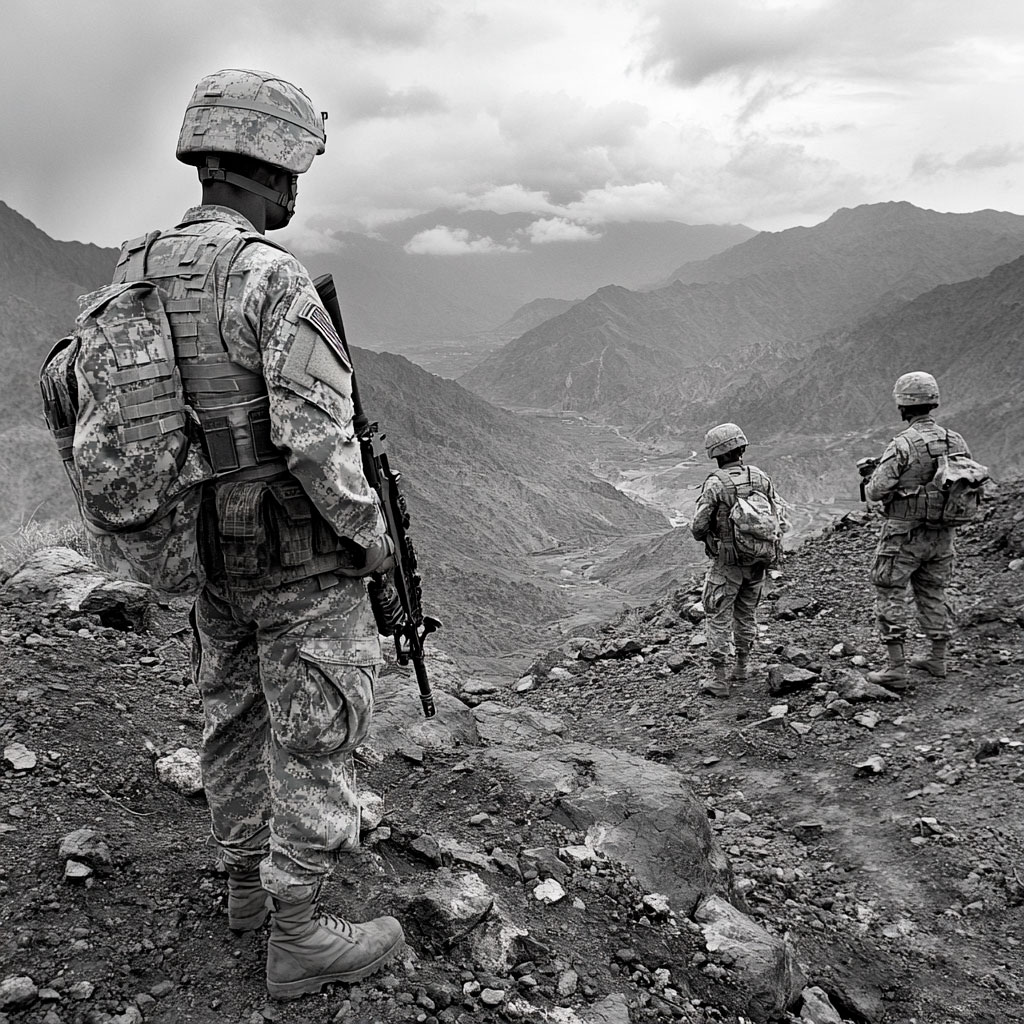
Modern military strategy cannot ignore the political dynamics that shape contemporary conflicts.
Modern military strategy cannot be separated from the political dynamics that surround it. Contemporary conflicts, such as those in Afghanistan, Iraq, Ukraine, and Gaza, illustrate the crucial importance of integrating political considerations into the planning and execution of military operations. A sequential approach, where politics precedes war, is proving insufficient in the face of the complexity of today’s wars. A simultaneous understanding of the political and military dimensions is essential to achieving the objectives set.

Military strategy: political science in disguise
Military strategy cannot be considered without a thorough understanding of the political dynamics that underpin it. As Carl von Clausewitz stated, war is the continuation of politics by other means. This perspective emphasizes that military objectives must be aligned with political objectives to ensure the success of a campaign.
Colin S. Gray, a prominent strategist, insisted that strategy is a political art. He warned against the temptation to separate political considerations from military decisions, arguing that this can lead to strategic failures. Gray asserted that strategy must be designed to achieve specific political objectives, not simply to win tactical victories.
This approach is corroborated by lessons learned from recent conflicts. For example, the US intervention in Iraq in 2003 aimed to overthrow Saddam Hussein’s regime. Although the military objective was achieved quickly, the lack of political planning for the post-war period led to prolonged instability and the emergence of insurgent groups. This demonstrates that without a clear political strategy, military victories can be short-lived.
The illusion of separation between politics and war
The idea that politics and war can be treated separately is a dangerous illusion. This sequential view, where politics precedes war and then fades away in favor of military operations, does not correspond to the reality of modern conflicts.
Antoine-Henri Jomini, a contemporary of Clausewitz, proposed a more technical approach to war, emphasizing universal military principles. However, this perspective has been criticized for its failure to take political and social factors into account. Samuel P. Huntington, in his book “The Soldier and the State,” argued for a clear separation between the political and military spheres, a position that influenced Western strategic thinking for decades.
However, recent conflicts have demonstrated the limitations of this approach. In Afghanistan, the lack of coordination between political objectives and military operations contributed to the failure of the mission. Similarly, in Iraq, the disconnect between political decisions and the realities on the ground led to prolonged instability.
The consequences of a strategy disconnected from politics
When military strategy is developed without taking political dynamics into account, the consequences can be disastrous. The example of Afghanistan is particularly illuminating. Despite years of military engagement, the United States has failed to establish lasting political stability, largely because of a military strategy that was disconnected from local political realities.
In Iraq, the lack of post-war planning led to a prolonged insurgency and the emergence of extremist groups. These examples underscore the importance of an integrated approach, where political objectives guide military decisions.
Furthermore, ignorance of political dynamics can lead to a loss of public support, both domestically and internationally. A military strategy perceived as illegitimate or ineffective can erode the confidence of citizens and allies, thereby compromising the success of the mission.

Towards an integrated approach to military strategy
To address past failures, it is essential to adopt an integrated approach to military strategy that takes political dynamics into account at every stage. This requires close collaboration between political decision-makers and military leaders to ensure consistency between political objectives and military capabilities.
Such an approach also requires a thorough understanding of the cultural, social, and economic contexts of conflict zones. Military strategies must be tailored to local realities, taking into account the aspirations of the population and existing power structures.
Finally, it is crucial to maintain strategic flexibility, allowing plans to be adjusted in line with changing political dynamics. Modern conflicts are characterized by their complexity and unpredictability, requiring constant adaptability.
Military strategy can only be effective if it is designed in harmony with political objectives. Recent conflicts have demonstrated the dangers of a disconnected approach, where military victories do not translate into political success. To meet the challenges of contemporary warfare, it is imperative to adopt an integrated strategy, where politics and war are seen as two inseparable facets of the same reality.
War Wings Daily is an independant magazine.